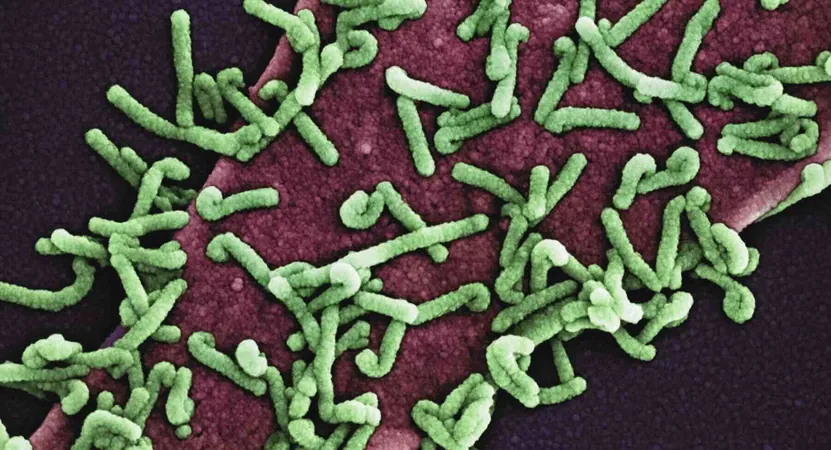
Surfing the Acid Wave: Alarming Drop in Ocean pH Discovered Near Hawai‘i
2025-08-25
Author: Arjun
A Shocking New Study Unveils Rising Ocean Acidity
For centuries, our oceans have been absorbing carbon dioxide from the atmosphere, a process that has rapidly escalated since the dawn of the industrial era. Now, a groundbreaking study from the University of Hawai‘i at Mānoa reveals something shocking: the acidification of Pacific waters is not just a surface-level problem, but is accelerating dramatically beneath the waves near Hawai‘i.
This alarming discovery was published in the Journal of Geophysical Research: Oceans, with lead researcher Lucie Knor emphasizing the far-reaching implications. "Ocean acidification could spell disaster for marine biology and the global climate," she warned. Although researchers anticipated some indicators of acidification would change more quickly below the surface, they were taken aback to find this pattern present across all examined indicators.
Diving Deep into the Data
To uncover these oceanic changes, Knor and her colleagues scrutinized a 35-year dataset from the Hawai‘i Ocean Time-series program. This extensive analysis covered nearly three miles of ocean depths at Station ALOHA, located about 60 miles north of O‘ahu. Their findings showed that layers of the ocean are increasingly rich in carbon, attributed primarily to the natural decay of organisms that sink to the ocean floor. In certain areas, this rapid acidification aligns with the presence of fresher, colder waters.
Impending Threats to Ocean Life
The results are troubling. Deeper waters in the North Pacific are already quite acidic, and the skyrocketing acidity levels pose a significant threat to the delicate plankton and other organisms residing below the surface. Knor cautioned that these chemical shifts not only jeopardize underwater life but also hinder the ocean's capacity to absorb additional CO₂ from the atmosphere—an essential function in combating climate change.
Concerning Trends: Marine Heat Waves and Ocean Chemistry
In recent years, there has been a spike in marine heat waves, driven by unusual atmospheric and oceanic conditions, as well as prolonged El Niño events. This phenomenon has fishery managers and coral conservationists deeply worried about the combined effects of rising ocean temperatures and increasing acidity.
The team at Station ALOHA is also tracking how human-made carbon sources contribute to these deep ocean changes over time, further emphasizing the interconnectedness of environmental shifts happening in the North Pacific.
Why This Matters Now More Than Ever
As our planet faces unprecedented challenges due to climate change, the urgency of understanding ocean acidification cannot be overstated. The findings from this study shine a critical light on how our actions on land directly impact the health of our oceans. The fight against climate change is more than just a surface issue; it goes deep beneath the waves.




 Brasil (PT)
Brasil (PT)
 Canada (EN)
Canada (EN)
 Chile (ES)
Chile (ES)
 Česko (CS)
Česko (CS)
 대한민국 (KO)
대한민국 (KO)
 España (ES)
España (ES)
 France (FR)
France (FR)
 Hong Kong (EN)
Hong Kong (EN)
 Italia (IT)
Italia (IT)
 日本 (JA)
日本 (JA)
 Magyarország (HU)
Magyarország (HU)
 Norge (NO)
Norge (NO)
 Polska (PL)
Polska (PL)
 Schweiz (DE)
Schweiz (DE)
 Singapore (EN)
Singapore (EN)
 Sverige (SV)
Sverige (SV)
 Suomi (FI)
Suomi (FI)
 Türkiye (TR)
Türkiye (TR)
 الإمارات العربية المتحدة (AR)
الإمارات العربية المتحدة (AR)